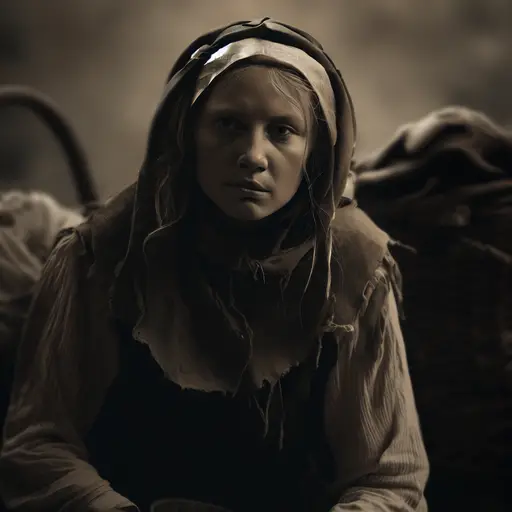Ingeborg Holm was a woman of great courage. She had endured so much in her life, but she always found a way to keep going – to keep fighting. She was a widow, with three young children to care for, and in the early 1900s, life was tough. She worked hard, taking in laundry and doing odd jobs, but it wasn’t enough. She was struggling to keep food on the table and a roof over their heads. That’s when she decided to go to the poorhouse.
Ingeborg knew that going to the poorhouse was a last resort. It was a place reserved for the destitute and desperate, for those who had nowhere else to turn. But with winter coming fast, she had no other choice. The journey there was long and arduous, and when she arrived, she was greeted by harsh, uncaring officials. They separated her from her children, assigning them to different parts of the building. Ingeborg was devastated, but she tried to make the best of it. She worked hard, doing whatever she could to earn enough money to get her children back.
Months went by, and the situation didn’t improve. Ingeborg was growing increasingly despondent, and her health was failing. She missed her children terribly, and she knew that the longer she stayed, the less chance she had of getting them back. Then, one day, she received a letter. It was from a wealthy woman who wanted to help her. The woman had seen her plight and wanted to offer her a job as a housekeeper. It was an opportunity she couldn’t refuse.
So Ingeborg packed up her things and left the poorhouse, never to return. She traveled to the woman’s grand estate, her heart full of hope and anticipation. But when she arrived, she found that things were not as they seemed. The woman was cruel and abusive, and Ingeborg was little more than a servant, forced to work long hours and endure the most terrible treatment. She missed her children more than ever, but there was nothing she could do. She was trapped.
As time went by, Ingeborg grew weaker and weaker. But she never gave up. She always had a glimmer of hope, a spark of determination that kept her going. Then, one day, her luck changed again. A man came to the estate, a kind man who saw the good in Ingeborg. He offered her a job in his own home, and she accepted gratefully. She packed her bags once more, leaving behind the horrors of her past.
The man’s home was warm and welcoming, a far cry from the cold, cruel place she had left behind. Ingeborg was happy there, working hard and getting along well with the man’s family. But still, she missed her children. She knew that she had to find a way to get them back.
So she began to save, putting aside whatever money she could. She wrote letters to her children, telling them that she was thinking of them and that she would never give up on them. Eventually, she had enough money to take her children home.
The reunion was joyful and tearful. Ingeborg had kept the family together despite all obstacles, and she had proven herself to be a woman of great strength and character. She had been through so much, but she had never lost sight of what was important. Her story was a testament to the resilience of the human spirit, and it would live on long after she was gone.
The story of Ingeborg Holm was one of hardship, struggle, and indomitable will. It was about a woman who faced the worst that life could throw at her and still managed to come out on top. It was a story that would resonate with anyone who had ever faced tough times, and it would inspire them to keep fighting, no matter what.












